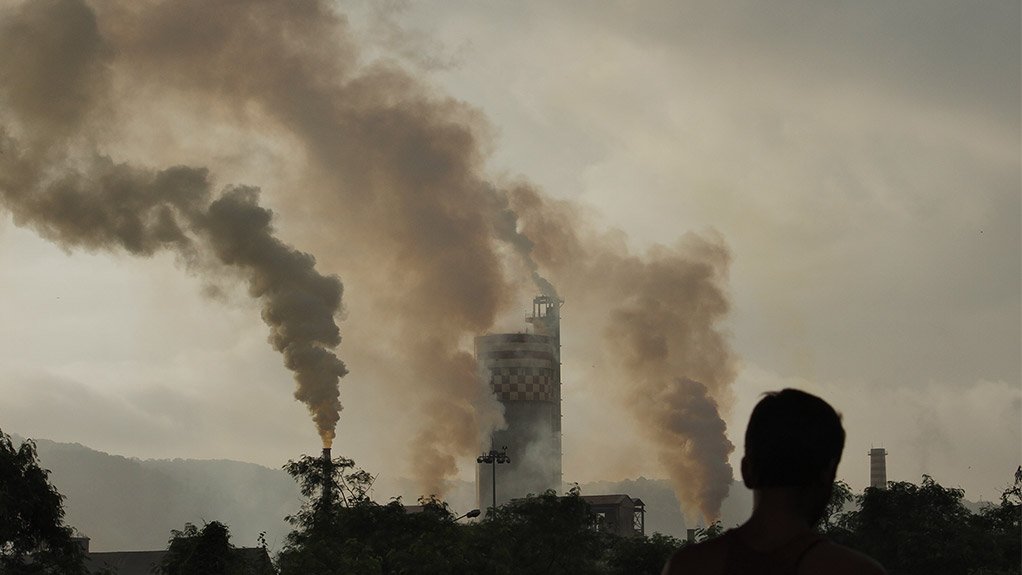A report released by advisory firm Promethium Carbon at the JSE on Wednesday concluded that the potential structuring of the market for a carbon-offset trading system in South Africa would be possible within the same time frame as the implementation of the country’s carbon tax in 2016.
However, this would only be possible provided maximum use was made of existing infrastructure, which was required to guarantee both the environmental and economic integrity of the system.
Promethium Carbon director Robbie Louw stated that in South Africa, carbon tax and carbon offsets were fast becoming a reality, noting that for carbon offsets to be functional, a carbon-offset trading system was required.
“The South African government’s climate change strategy allows for the potential use of carbon offsets in two applications. The first is to allow companies to mitigate their financial liability in terms of the proposed carbon tax. The second is to allow companies to use offsets against a potential carbon budgeting system. This report [funded by the British High Commission’s Prosperity Fund] focuses mainly on the first application,” he explained, noting that two levels of infrastructure are required.
“The first level of infrastructure is required to ensure the environmental integrity of the system. Environmental integrity refers to the requirement that each ton of carbon dioxide (CO2) traded as an offset must represent an actual emission reduction of 1 t,” Louw said, adding that this could be achieved through the use of existing offset standards like the Clean Development Mechanism (CDM), the Verified Carbon Standard (VCS) or the Gold Standard.
He pointed out that the second level of infrastructure was required to ensure the economic integrity of the system.
“This means that the credits and money handled in the system must be secure from theft, fraud and other undesirable events. Economic integrity can be ensured by using the JSE as a trading platform and combining it with either a local or international registry such as Markit or APX,” noted Louw.
Promethium’s report proposes to limit the trade of offset credits in South Africa to credits generated in projects to avoid the abuse of the system. Louw pointed out that eligibility criteria needed to be determined to ensure projects contributed to the development objectives of the country.
“It is proposed to achieve this through a set of ‘national appropriateness’ tagging rules. The tagging rules should be placed under the custodianship of a committee, consisting of both government and the private sector,” he explained.
Louw stated that the infrastructure required for the implementation of the national appropriateness tagging rules already existed in South Africa’s current environmental auditing industry and no additional infrastructure development was required for this aspect of the trading system.
The research done for the report also covered high-level analysis of the potential market supply and demand. The study found that there was sufficient potential volume to meet the demand generated by the proposed carbon tax at a marginal cost of R120 for each ton of CO2, while the estimated volume of trade in the market was sufficient enough to create a viable market.
In addition, the report states that a potential trading system could also be used under a carbon budget regime.
It further highlighted that building on existing national and international infrastructure would ensure the integrity, credibility and consistency of the proposed system, reducing “costs and enhancing the prospects of future linking with international carbon markets,” said Louw.
Meanwhile, UK special representative on climate change Sir David King stated at the launch that, on a global scale, the impacts of climate change were “not comfortable”.
“Every society has adapted to its local conditions and when these conditions change, it causes massive discomfort,” he noted.
King added that the twenty-first century predented a series of challenges that were qualitatively different from any other challenges the world had faced before.
“At the beginning of the last century, the total population of the planet was 1.5-billion people. By 2050 there will be close to nine-billion people on the planet, [contributing to climate change],” he said.
King pointed out that the number of middle-class people – those who spend between $10 and $15 a day – was now at two-billion people globally and would rise to five-billion by 2030.
“A five-fold increase in the consumers on the planet will present an enormous challenge for all of us to deliver resources to those middle-class people. Commodities will be in short supply while demand continues to grow and this will come with many challenges, climate change being the biggest one,” he stated.
EMAIL THIS ARTICLE SAVE THIS ARTICLE FEEDBACK
To subscribe email subscriptions@creamermedia.co.za or click here
To advertise email advertising@creamermedia.co.za or click here











